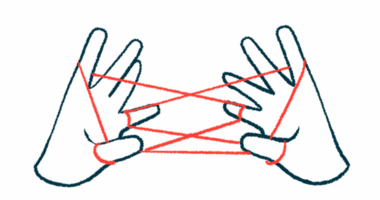Plant Extract of South American Medicine Eases Symptoms in Rats

An extract from the plant Tabebuia impetiginosa, which has been used for centuries in traditional medicines of South America, eased Parkinson’s disease symptoms in rat models, a study reported.
Treatment aided the animals’ locomotion, eased evident stiffness, and raised dopamine levels in brain tissue, its researchers wrote.
The study, “Antiparkinsonian activity of Tabebuia Impetiginosa bark and biochemical analysis of Dopamine in rat brain homogenates,” was published in Annales Pharmaceutiques Françaises.
Tabehuia impetiginosa, called the pink trumpet tree, has a long history of use in traditional medicine. The plant is thought to have anti-inflammatory and antioxidant properties, as well as antibacterial and antifungal effects.
Researchers in India tested the effects of treatment with an extract from Tabehuia impetiginosa bark in three Parkinson’s rat models whose disease was chemically induced.
In one model created using the chemical MPTP, rats show abnormally slow locomotion compared with healthy rats. Treatment with a high dose (500 mg/kg) of Tabehuia impetiginosa increased locomotion in MPTP rats.
“This increase in locomotion with Tabebuia impetiginosa bark indicates its antiparkinsonian activity in rats,” the researchers wrote. They noted that the locomotion-enhancing effect of the extract was less potent than that of Apokyn (apomorphine), an approved Parkinson’s therapy.
Similarly, in a rat model induced by reserpine, treatment with the bark extract eased tremor and rigidity in the animals.
In a third model induced by haloperidol, the extract’s use lessened catalepsy, a trance-like state where the body is still and stiff.
“The delay in onset and decrease in duration of catalepsy in rats with Tabebuia impetiginosa bark extract signifies its antiparkinsonian activity,” the researchers wrote.
Analyses of the rats’ brain tissue showed that Tabebuia impetiginosa‘s use led to a significant increase in dopamine levels there. Dopamine is a neurotransmitter — a chemical messenger that nerve cells use to communicate with each other — and Parkinson’s is caused by the death and dysfunction of dopamine-producing cells in certain brain regions.
Treatment with Apokyn also significantly increased dopamine levels in the brains of these animal models.
Additional safety analyses done in mice showed no toxic effects of Tabebuia impetiginosa treatment at doses up to 2,000 mg/kg. The highest dose given rats in this study was 500 mg/kg.
“The findings demonstrate that Tabebuia impetiginosa bark extract has significant anti-cataleptic potentials and the antioxidant effect of the bark may also be a significant contributor to its antiparkinsonian activity,” the researchers concluded, adding that these data support suggestions that this plant can be used “as an alternative source for herbal treatment of the Parkinsonism.”







